“Fat, Sick and Nearly Dead” and Your Heirloom Garden
First off, watch the trailer about this crazy Australian who comes to America and spends 60 days on a complete juice fast-
Now you’re wondering- “What in the world does that have to do with my home garden?”
Surprisingly more than you think!
In “Fat, Sick and Nearly Dead”, Joe Cross regained his health, lost weight and ditched a lot of prescription drugs (with his doctors approval!) by changing his diet and eating better. Specifically- eating a lot of fruits and veggies and losing the processed, packaged industrial foods that put him in that corner to begin with.
Here’s where your heirloom garden comes in; right in your backyard, on your porch or balcony. It can be easily explained in one simple, overused word- nutrition. You have much more positive influence on your health with a home garden than you would think. By tending to your garden and growing just some of your own food, you will be eating much better from both a dietary and nutritional viewpoint than almost any other way.
Let’s look at how this works-
Creating and maintaining biologically sustainable, healthy and fertile soil is the first step. This builds the foundation for strong, healthy, productive and disease/pest resistant plants that grow food that is not only healthy but highly delicious as well. This can be done no matter the size of the garden, all the way down to a few containers or an Earthbox.
Many folks don’t stop and think about how important the soil is to the overall flavor and nutrition of the produce. In biological, sustainable agriculture a term called “Brix” is used a lot. It means the amount of plant sugars that are present in a drop of sap from the stem, leaves or fruit. The higher the Brix, the healthier the plant and the sweeter (and tastier) the veggie or fruit. Higher Brix plants also have fewer pest and disease pressures.
Very few people have tasted high Brix vegetables, and those that have remember that they tasted like no other. For example, a simple bell pepper that has a Brix of 4 will taste bland, unremarkable and somewhat bitter. Now raise that Brix reading to 12 or 16 and it will taste like an apple in its sweetness! Not only will it be sweet, but rich and complex in flavors that you have not tasted in a bell pepper before. Another example is green beans. 4 Brix green beans need some sugar before kids will eat them, yet at the 8-10 Brix level kids will go out to the garden to pick them fresh and few make it to the kitchen. Most green beans at the supermarket are in the 4-5 Brix range.
High quality seeds are the next step. They provide the next link in the chain of growing food, but are often thought of as a commodity and not very important to spend time on getting the quality needed. While it is true that great soil can grow mediocre seeds, you don’t really want to go there do you? After the time spent in getting the garden planned, soil built and amended why use second-rate seeds?
The nutrient-dense, highly nutritious and delicious vegetables from your heirloom garden are the final result. Here’s where all of this ties into “Fat, Sick and Nearly Dead”, as Joe found that drinking juice made from several different kinds of vegetables gave him the nutritional boost to get his systems back in order, his health back and lose the weight from years of not eating right. He bought his veggies from stores, and talks a bit about buying organic instead of conventional vegetables. He had no choice in growing his vegetables, as he was traveling. If his remarkable progress is possible with store-bought produce, can you imagine what you can do with nutrient-dense vegetables that you’ve grown in your own soil?
I’m not talking about just growing for juicing, but eating the produce from your own garden can have a similar positive impact on your health, when grown as described above. If you have the space and can grow veggies for juicing, you will see even more beneficial results in addition to eating them.
Pretty amazing to see what benefits a home heirloom garden can have, isn’t it?
Please realize that this article is not advocating eating only vegetables, only juice or not eating meat, but is looking at how we can achieve some impressive results with tools and opportunities that many of us already have. The absolute fact is that most Americans really need more vegetables in their diets with a corresponding reduction of the processed, packaged industrial foods that are all around us every day.
It is well worth watching “Fat, Sick and Nearly Dead” and visiting Joe’s website- FatSickandNearlyDead.com. The movie is available through Hulu and Netflix, among others.
Just imagine- eating nutrient-dense fresh vegetables and drinking juices made from them grown in your own garden as a method of greatly improved health. Pretty radical thought, isn’t it?

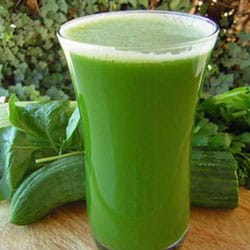

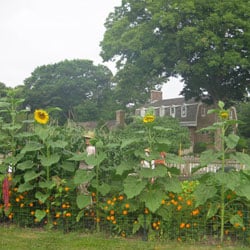
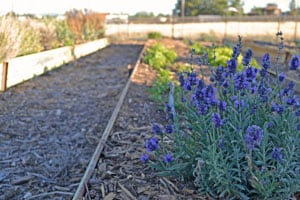
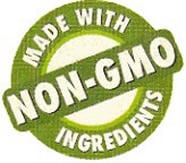


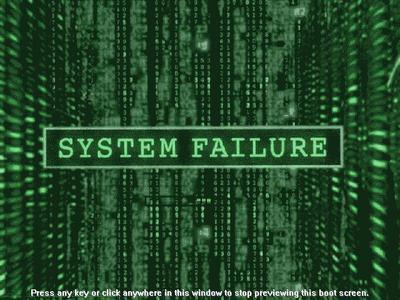
In 2010, I read an article about heirloom seeds. I became interested in planting a garden and I buried myself in research. We live in the city (Southern California), and although we have a bi-weekly farmers market close to our home we still have always consumed fruits and vegetables from the local grocery store.
We have a very small plot of actual land (that isn’t covered in concrete) located next to our rented apartment. The land is 8’x30′. With the landowners permission we built boxes on the land (3 boxes 5′ wide by 8′ long) we utilized the best soil we could afford with the best organic qualities we could find. We purchased locally the heirloom seeds we could find and purchased on-line what we could not find locally. Our whole family (myself, wife and 2 daughters) threw ourselves into this project and I found a calming and stress-relieving activity that I looked forward to after I got home from work.We took photo’s of our growing plants, and made charts with growing trends that might be helpful with future harvests. Some of our neighbors thought we had gone quite mad as we purchased a water softener and filter for our garden hose and small watering system, as well as checking the temperature and pH of our soil, it was a wonderful way for our family to enjoy an activity that we all participated in. In October of 2011 we got some cold weather (cold for southern calif that is), we built green houses (hoop-houses I’ve heard them called) from plans we found on-line. We installed thermostatically controlled space heaters in each ‘house’ to keep the plants warm. We looked after ‘the garden’ as if the plants were our own children (this may sound very strange to some). In the time we had the garden, we had got other family members interested and they started their own small gardens.
On the weekend of December 10, 2011, we had gone on a 3 day family trip. During the time we were gone, for reasons we will never know, our garden was destroyed by vandals. The heaters (only $9.00 each at our local big box store) and our hand-made watering system, hoses and water purifier were stolen. Our plants were ripped from the soil (the vegetables were not taken ?) and various gardening hand tools were taken. The plastic on the hoop houses was sliced to ribbons. The scene pretty much took the wind out of our sails, as the saying goes. Such is life, living in the city I guess. We abandoned the garden. I cleared the debris out and weeds started growing, adding to the depression we felt when any of us even looked at the ‘side yard’.
The end of January, I saw the movie “Fat, Sick and Nearly Dead”, and not knowing what to expect, I watched the program. I found it to be an awesome program. It’s not often I become motivated by any program on the television, but the program hit home with me in a few different ways, and one of those was the joy of growing our own food. Now with a new resurgence of food-related movies (documentaries really), we have decided to give the garden another go. We can’t build any walls or fences around the plot so we could end up with the same results, but at this point moving on will help us keep our hobby, (hobby doesn’t seem to be the correct word actually its more than a hobby), going. so I say “damn the torpedoes and full steam ahead” as we re-build and get ready for this growing season.
Thank you to Terroir Seeds for the great newsletter. The newsletter has also kept our interest in growing our garden alive.
Vince, Lee, Heather, and Megan Rush.
Southern Calif.
Thank you so much for the kind words, Vince! We’re sad to see what happened to your garden, but are glad to hear that you are re-building and will be growing more of your own food. “fat, Sick and Nearly Dead” has had a very positive effect on a lot of people in many different ways.
Something that a number of our customers that live in cities with similar situations as yours do is share some of the garden produce with the neighbors and get to know them better. This creates a sort of automatic neighborhood watch program, as once folks taste fresh garden goodies, they are more likely to be a bit more watchful and protective when you aren’t there. Some neighbors have even started their own gardens!
Stephen,
Yes, as we look back, on the previous garden, we do agree that getting (or at least trying to get) our neighbors involved is something we SHOULD have done. I think we were so wrapped up in the garden as only belonging to us, we did not see the big picture. This time around we are going to make a GREAT EFFORT in the involvement of our neighbors. Plus it wouldent be a bad thing to get to know some of our neighbors, and a garden seems like one of the best ways to do so.
Thanks again,
Vince.
Vince-
You have the beginnings of a local food system starting right in your backyard. This is how truly local, sustainable agriculture can be established, especially in an urban environment. A garden and the food it produces truly has no limits or boundaries. Everyone must eat, and that simple fact transcends politics, religion, economics or any other barrier to people getting to know each other.
Keep us posted as to how your garden grows this year!